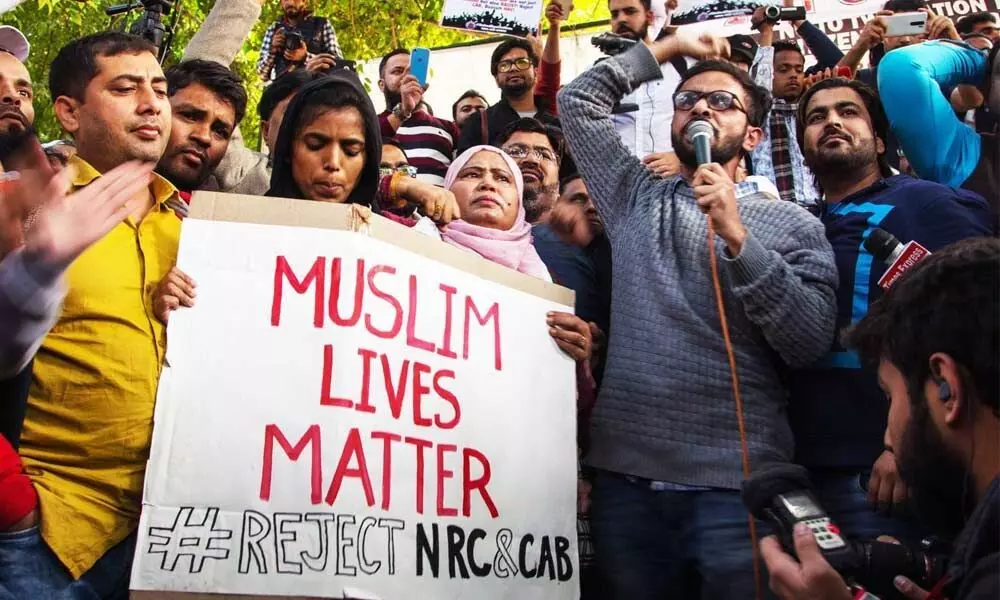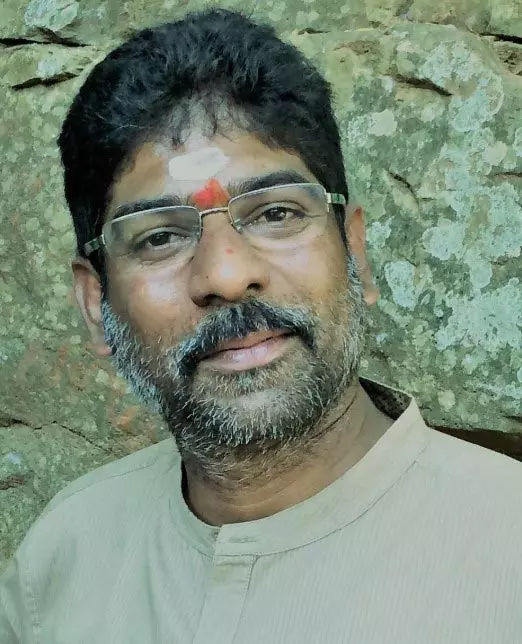Live
- NCC, NSS and ex-servicemen urged to volunteer in elections
- Tributes paid to Kallakuri Narayana Rao
- Arani Srinivasulu assures to stand by fabrication workers
- 666 poll violation complaints resolved
- Telangana: Vaccination camp for Haj pilgrims from today
- Second phase of polling staff randomisation process completed
- Malicious twist: Congress
- Disabled will get their fair share under Congress govt: Chevella MP
- Pay spl attention to critical polling centres: SP Siddharth
- YSRCP failed to develop Vizag in past 5 years, says Sharmila
Just In

Bharat needs a bullish bellwether
It took a British nobleman to float an outfit to fight the colonial regime, way back in 1885
It took a British nobleman to float an outfit to fight the colonial regime, way back in 1885. Indian leaders including Dadabhai Naoroji, Surendranath Banerjee, K Kamaraj, Pherozeshah Mehta, MG Ranade and others took the movement forward and with M K Gandhi at its helm, the Indian National Congress fought for freedom using nonviolence as its weapon. And the rest is history.
Though for the first 30 years of Independence the Congress remained the champion, in 1977, the party suffered a humiliating defeat under the leadership of Indira Gandhi in the general elections that followed the infamous 'Emergency'. For the first time in the history of India, a non-Congress government was formed by the Janata Party with Morarji Desai as the Prime Minister. But things did not shine bright for the Janata Party as it was founded on narrow religious sentiments rather than strong ideological fundamentalism.
The Janata Party was apparently an offshoot of Bharatiya Jana Sangh (BJP), the political outfit of Rashtriya Swayamsevak Sangh (RSS). The party was founded in 1951 by Dr Shyama Prasad Mukherjee with an aim to destabilise the Congress. Though it came to power with a stunning majority in 1977, internal conflicts and disgruntlement among its leaders led to the party's collapse in 1979. One year after, two of its prominent members – Atal Behari Vajpayee and Lal Krishna Advani – along with core members of the Janata Party, launched the Bharatiya Janata Party (BJP) in 1980.
With Hindutva as its footboard, the party grew by leaps and bounds and three decades after, in 2014, it emerged as the largest single party in the Lok Sabha. Narendra Modi, who has no regards for the Indian Constitution and democracy, was sworn in as the Prime Minister of India, heralding the death of secularism in the country. The fact that with an agenda of Hindutva nationalism, cow protection, Ram mandir in Ayodhya and citizenship amendment, the party and its allies do not have any interest in bridging the socio-economic inequalities nor the welfare of the common public is anybody's knowledge.
It may be recalled that Indira Gandhi's doggedness and arbitrary administration sowed seeds of disenchantment to the Congress among India's electorate, leading to gradual downfall of the grand old party. When Indira Gandhi was assassinated by her own security guards on October 31 in 1984, her son Rajiv Gandhi took charge of the party affairs and led the party to a thumping victory in 1984 general elections winning a record of 414 seats ostensibly due to the sympathy wave created by Indira Gandhi's assassination. But in the next elections, the Congress lost its dominance as it came under the cloud of Bofors scam.
The Congress returned to power after the 1991 Lok Sabha elections and ruled the country with a clear-cut mandate between 1971-1988 (barring the Janata Party rule) and remained the largest political outfit between 1989 and 1996. But as is the wont, the personality cult and dynastic rule dented the brand image of Congress, leading to the decline of its organisational structure and mass support base. Centralised leadership and allegations of massive corruption, coupled with lack of consensus in decision making, accelerated the fall of the Congress.
Following Rajiv Gandhi's assassination, the party's mantle was taken over by Sonia Gandhi, an Italian national by birth and an Indian by choice. General elections in 2004 helped the Congress to gain power at the Centre once again with Manmohan Singh being the Prime Minister of the UPA government. The leadership was diluted from a single person to Manmohan-Sonia-Rahul trio which worked well for five years (2004-09) and in the 2009 national elections was able to retain power winning over 200 seats on its own. The impressive performance of the Congress was due to the combined leadership of Manmohan Singh, Sonia Gandhi and Rahul Gandhi, the National Rural Employment Guarantee Scheme (NREGS), farm loan waiver scheme, pro poor policies of the UPA government, confidence of stability and victory of secular forces.
However, numerous scams, high inflation and unemployment rates, price rise and the policy paralysis rocked the nation which resulted in total wipe-out of the Congress in the general election in 2014.
The electorate voted in favour of the BJP Prime Ministerial designate Narendra Modi which propelled the saffron party back to power in Delhi with a comfortable majority signalling the beginning of the BJP dominance in the national spectrum of power politics. However, umpteen instances of mob lynching, cow vigilantism, rapes, atrocities on Dalits, unemployment, economy crunch, demonetisation, privatisation of several State-run establishments, Citizen's Amendment Act and the vile farm reforms that took away the basic rights of farmers in the country all prove beyond any doubt that the BJP's sole schema is a Hindu fascist India, and nothing else.
As democracy is in its deathbed, India needs a saviour who will protect its populace from corporate bullies and religious zealots. As the BJP claims, its government is not elected by the majority of Indian voters. The government represents a few upper-class Hindus and a host of regional parties having mean and vested interests. The Congress cannot play an alternative to the ruling dispensation. Rahul Gandhi is perhaps the country's biggest disaster who seems to have lost his interest in national politics. The country's youth want change, but they don't have a leader nor a party with strong commitment to the people and the country.
The Congress, under Nehru was an omnibus party which co-opted the ideological shades of the right-centre-left and built a consensus to rule India giving no leeway to political parties of left and right orientation to spread their political and electoral wings. The leadership and party organisation were in equilibrium and equally strong with no major opposition to challenge its supremacy. Indira Gandhi was charismatic, but she banked on centralised and authoritative decisions to rule the country. Rajiv Gandhi was best as a pilot but not as Prime Minister. The party at present does not have a strong leader and workable structure and its ideological agenda of leftist-welfarist policies for the poor has been hijacked by the BJP which is using it cleverly to position itself as the single dominant party in Indian politics.
It is against this backdrop, the need to have a young, energetic and gritty leader gains prominence. The Congress cannot rewrite its ideological agenda and open the entry gates of the party for people with rightist views within its broad spectrum of secular politics to counter the BJP surge in the country. The party lost its cadres, foot soldiers and flag bearers at the grassroots level. A new party, based on strong political ideology and spotless integrity, led by a powerful leader only can save democracy and secularism in this country.

© 2024 Hyderabad Media House Limited/The Hans India. All rights reserved. Powered by hocalwire.com







